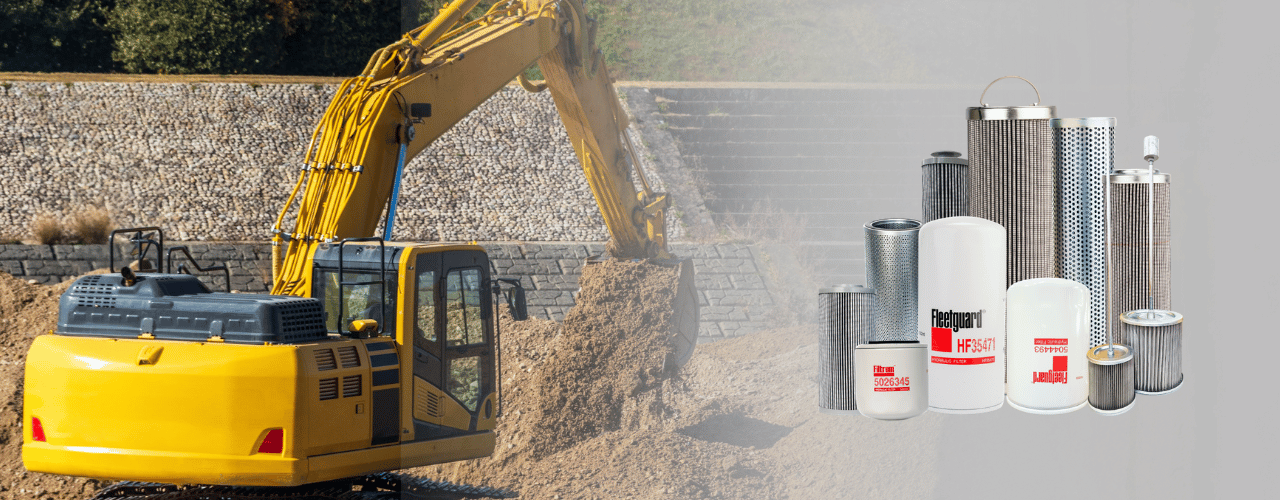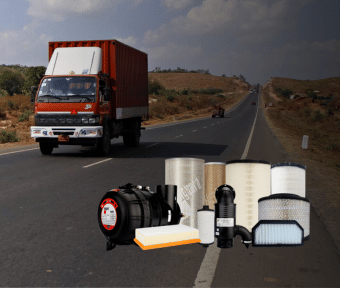Product | 28 Nov 2018
Engine Coolant is a generic term used to describe fluids that remove excess heat from engine. An integral part of all HDV engines, the engine coolant remove excess heat from the Internal combustion engine by transferring heat into the atmosphere via the radiator. It maintains the temperature of the engine, thereby preventing major mechanical failures. The chemical composition of coolants have anti-freezing and anti-rust properties which protects the engine from oxidation, corrosion, pitting, scaling & plugging ensuring uptime of the equipment.
Composition of a Coolant
Coolant is primarily a mixture of de-ionized water, glycol (mainly ethylene glycol or propylene glycol) and chemical additives. It is incumbent to select a coolant according to your requirement. The choice depends on the kind of environment and temperatures the engine is frequently exposed to. In a hot climate, an ideal coolant protects itself from boiling off into air due to overheat and in a cold climate, it does not freeze. At least 40% of the engine problems are due to lack of sufficient cooling.
Types of Coolants:
Depending on the usage and applications, there are at least 3 types of coolants used in heavy duty vehicle engines. They are as follows
1. Traditional Coolant
These are the regular or conventional coolants having corrosion inhibiting properties that protect the metals such as steel, aluminum and copper from corrosion. In heavy duty engines, this coolant provides excellent protection against wet sleeve liner corrosion. These coolants are typically found in green or purple color. The corrosion inhibitors in the coolant have faster depletion rate and hence a limited lifespan.
2. OAT Coolant
OAT or Organic Acid Technology are silicate free and long life coolants. Unlike the traditional coolants, the carboxylate acid corrosion inhibitors used in them have very low depletion rates. Hence, frequent periodical fueling of Supplemental Coolant Additives is not required and one refill can often be used over the engine’s lifetime. They are typically red or orange in color. It also provides an outstanding protection of aluminum at high temperatures.
3. Hybrid Coolant
This coolant technology combines the benefits offered by traditional corrosion inhibitor technology and combines this with the benefits of OAT corrosion inhibitor technology. This coolant is found typically in yellow and red color. They are used in both light and heavy duty diesel applications. This hybrid technology is also referred to as HOAT technology.
Apart from the coolants, coolant filter are integrated in the automotive system to protect the coolants from external contaminants and clear them off the internal ones. They are also used to add chemicals such as SCA, to the coolant to recharge it’s resources which get depleted over time. If you are looking for the right solutions for your engine, It is better to purchase filters only from verified and known automotive filter manufacturers.
Why Coolant is Important in Heavy Duty Engines?
Coolants are used because simply water is not appropriate. The property of water makes it boil and evaporate at high temperatures and freeze at low temperatures, hence defeating the purpose of a coolant. Coolants are specifically designed to sustain extreme temperatures thereby protecting the heavy duty engines. It maintains the temperature using efficient heat transfer without which the engine would either freeze or burn out. Also, the anti-corrosion property of the coolants save the metal components of the engine from getting corroded and oxidized. Without an efficient cooling mechanism, the lifespan and efficiency of the engine will be reduced.








